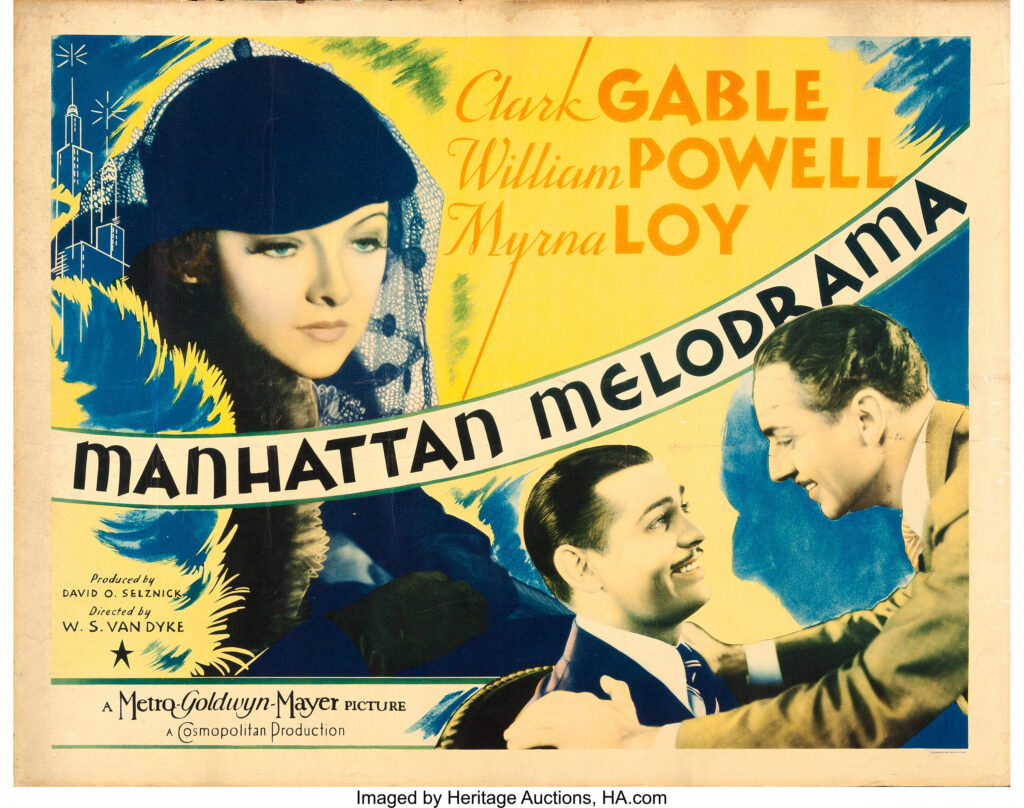
The following is a chapter from my book Film: The Front Line 1983 (Denver, CO: Arden Press, 1983), a volume commissioned as the first in a projected annual series that would survey recent independent and experimental filmmaking. (A second volume, Film: The Front Line 1984, by David Ehrenstein, appeared the following year, but lamentably the series never continued after that, for a variety of reasons, even though both volumes remain in print.) I have followed the format used in both books.
It’s worth adding that De Landa abandoned filmmaking not long after this article appeared –- after planning, as I recall (but not shooting), a film starring his penis, to be entitled My Dick — and went on to pursue a distinguished academic career as a professor of art, architecture, and philosophy in New York, Pennsylvania, and Switzerland, with at least four books to his credit: War in the Age of Intelligent Machines (1991), A Thousand Years of Nonlinear History (1997), Intensive Science and Virtual Philosophy (2002), and A New Philosophy of Society (2006). For this reason, I couldn’t originally illustrate this piece with any images from his films, as I did in Film: The Front Line 1983, until some frame enlargements were recently made from Incontinence,a month after this article was originally posted, by Georg Wasner of the Austrian Film Museum, to use in a catalogue for a retrospective that I programmed (see below).Most Read more
From the Chicago Reader (May 25, 1990). This is also reprinted in my first collection, Placing Movies: The Practice of Film Criticism. — J.R.
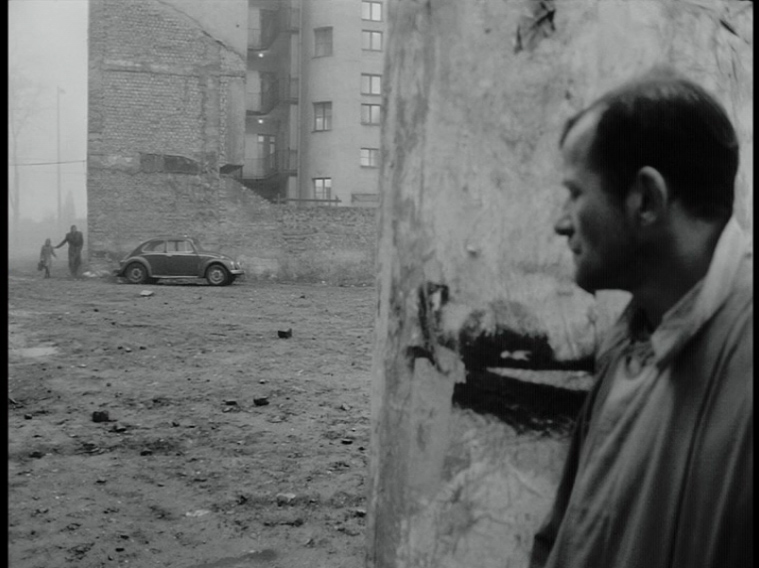
ALMANAC OF FALL
*** (A must-see)
Directed and written by Bela Tarr
With Hedi Temessy, Erika Bodnar, Miklos B. Szekely, Pal Hetenyi, and Janos Derzsi.
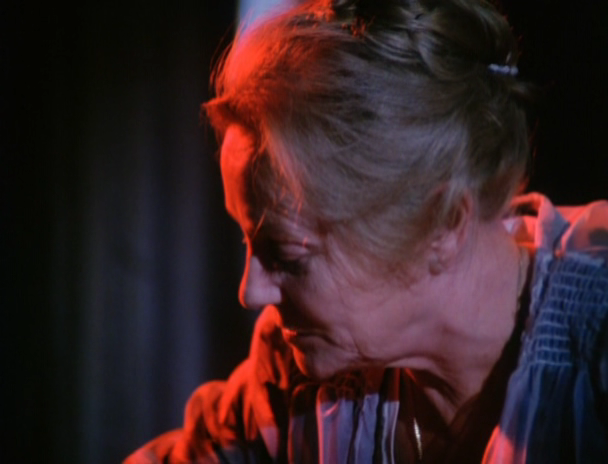
1. Problems
One reason that Eastern European films often don’t get the attention they deserve in the West is that we lack the cultural and historical contexts for them. If Eastern Europe’s recent social and political upheavals took most of the world by surprise, this was because most of us have been denied the opportunity to see the continuity behind them: they seemed to spring out of nowhere. The best Eastern European films tend to catch us off guard in the same way, and for similar reasons.
My own knowledge of Hungarian cinema is spotty at best, despite the fact that, according to David Cook in A History of Narrative Film, the Hungarians “seem to have identified film as an art form before any other nationality in the world, including the French.” (One of the first major film theorists, Bela Balazs, was Hungarian, and a contemporary film studio in Budapest is named after him.) Read more
After hearing about this movie for most of my life because it was the last thing John Dillinger saw (on July 22, 1934 at the Biograph Theater — a movie house that was still in operation when I moved to Chicago in 1987), I finally caught up with it on TCM and am surprised what a good picture it is. However idealized the two leading characters are — a good-natured gangster (Clark Gable at his very best) and a principled lawyer (William Powell), childhood pals, both of them loved by a good-natured and principled woman (Myrna Loy) — the diverse changes rung on our sympathies remain complex and nuanced throughout. I hope Dillinger liked it too. The continuing ambivalence of the Chicago public towards him can be measured by the fact that a restaurant located next to the Biograph was named after him.
There are many other reasons for liking this movie. I put off seeing it for so long because it was directed by W.S. Van Dyke (or “One-Take Woody” as he was known at MGM), which led me to ignore the fact that the screenplay was cowritten by Joseph L. Mankiewicz, which I suspect helps to account for its overall intelligence. Read more
From the Chicago Reader (October 1, 2000). — J. R.
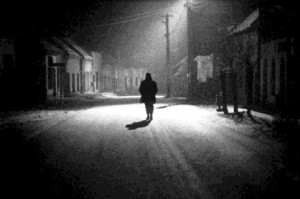
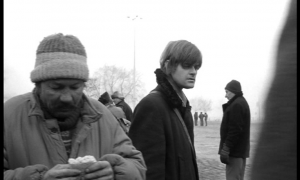
A chilling, mesmerizing, intense account of ethnic cleansing (in spirit if not in letter) from Hungarian master Bela Tarr (2000, 145 min.), set in virtually the same overcast, rural black-and-white world as his Damnation and Satantango (both also cowritten by Laszlo Krasznahorkai). As in Satantango, Krasznahorkai worked with Tarr in adapting his own novel — in this case the first to be translated into English, The Melancholy of Resistance, elaborately restructured here in terms of narrative sequence and viewpoint so that it’s mainly limited to the experience of a simpleminded messenger and artist figure. A decrepit circus (actually a huge truck) in an impoverished town displays the stuffed body of the largest whale in the world while spreading rumors about but failing to deliver a foreign prince. Eventually the unemployed male locals head for the local hospital like a lynch mob and proceed to devastate the premises. Krasznahorkai’s parallels with southern gothic fiction are as striking as those with other eastern European allegories, yielding cadenced prose as monotonously grim as Thomas Bernhard’s. The long takes following characters — the structural equivalent of the novel’s Faulknerian sentences, though the content recalls Beckett’s comedy of inertia — underline our easy complicity with these monsters, and the actors, including Hanna Schygulla in a welcome comeback, are riveting. Read more




